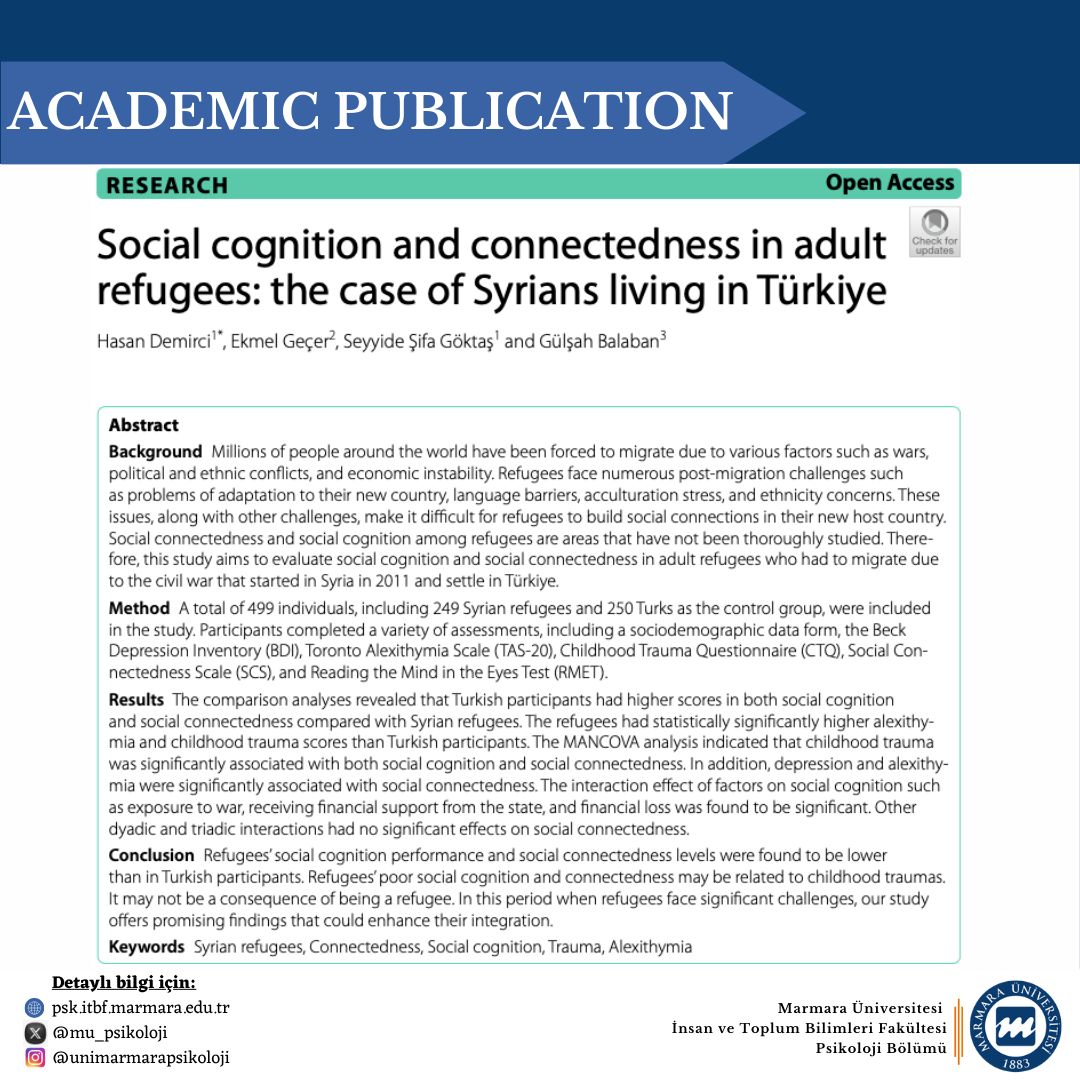
The study carried out by Prof. Dr. Ekmel Geçer, one of our department professors, with his colleagues was published in the journal BMC Psychology.
Millions of people around the world have been forced to migrate due to various factors such as wars, political and ethnic conflicts, and economic instability. Refugees face numerous post-migration challenges such as problems of adaptation to their new country, language barriers, acculturation stress, and ethnicity concerns. These issues, along with other challenges, make it difficult for refugees to build social connections in their new host country. Social connectedness and social cognition among refugees are areas that have not been thoroughly studied. Therefore, this study aims to evaluate social cognition and social connectedness in adult refugees who had to migrate due to the civil war that started in Syria in 2011 and settle in Türkiye. A total of 499 individuals, including 249 Syrian refugees and 250 Turks as the control group, were included in the study. The comparison analyses revealed that Turkish participants had higher scores in both social cognition and social connectedness compared with Syrian refugees. The refugees had statistically significantly higher alexithymia and childhood trauma scores than Turkish participants. The MANCOVA analysis indicated that childhood trauma was significantly associated with both social cognition and social connectedness. In addition, depression and alexithymia were significantly associated with social connectedness. The interaction effect of factors on social cognition such as exposure to war, receiving financial support from the state, and financial loss was found to be significant. All in all, refugees’ social cognition performance and social connectedness levels were found to be lower than in Turkish participants. Their poor social cognition and connectedness may be related to childhood traumas, and may not be a consequence of being a refugee. In this period when refugees face significant challenges, this study offers promising findings that could enhance their integration.
Click here to access the article.
